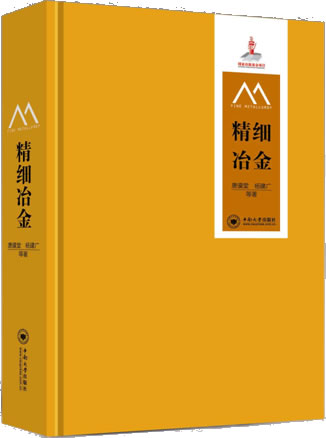-
工矿自动化2021年第8期
工矿自动化.bmp)
《工矿自动化》杂志原名《煤矿自动化》(ISSN 1001-439X),创刊于1973年,1978年公开发行,1982年由原煤炭工业部委托煤炭科学研究院常州自动化研究所(现煤炭科学研究总院常州自动化研究...
-
工矿自动化2021年第7期
工矿自动化.bmp)
《工矿自动化》杂志原名《煤矿自动化》(ISSN 1001-439X),创刊于1973年,1978年公开发行,1982年由原煤炭工业部委托煤炭科学研究院常州自动化研究所(现煤炭科学研究总院常州自动化研究...
-
工矿自动化2021年第6期
工矿自动化.bmp)
《工矿自动化》杂志原名《煤矿自动化》(ISSN 1001-439X),创刊于1973年,1978年公开发行,1982年由原煤炭工业部委托煤炭科学研究院常州自动化研究所(现煤炭科学研究总院常州自动化研究...
-
工矿自动化2021年第5期
工矿自动化.bmp)
《工矿自动化》杂志原名《煤矿自动化》(ISSN 1001-439X),创刊于1973年,1978年公开发行,1982年由原煤炭工业部委托煤炭科学研究院常州自动化研究所(现煤炭科学研究总院常州自动化研究...
-
现代矿业2021年第7期
现代矿业.jpg)
传播现代矿业技术,拓展先进技术在矿业领域的应用范围和层次,提升我国传统矿业工程技术水平,活跃学术思想,传播矿业科技成果和技术改造经验,以市场为导向,密切联系现场实际,对象:矿业企事业单位、科研设计单位...
-
现代矿业2021年第6期
现代矿业.jpg)
传播现代矿业技术,拓展先进技术在矿业领域的应用范围和层次,提升我国传统矿业工程技术水平,活跃学术思想,传播矿业科技成果和技术改造经验,以市场为导向,密切联系现场实际,对象:矿业企事业单位、科研设计单位...
-
现代矿业2021年第5期
现代矿业.jpg)
传播现代矿业技术,拓展先进技术在矿业领域的应用范围和层次,提升我国传统矿业工程技术水平,活跃学术思想,传播矿业科技成果和技术改造经验,以市场为导向,密切联系现场实际,对象:矿业企事业单位、科研设计单位...
-
现代矿业2021年第4期
现代矿业.jpg)
传播现代矿业技术,拓展先进技术在矿业领域的应用范围和层次,提升我国传统矿业工程技术水平,活跃学术思想,传播矿业科技成果和技术改造经验,以市场为导向,密切联系现场实际,对象:矿业企事业单位、科研设计单位...
-
现代矿业2021年第3期
现代矿业.jpg)
传播现代矿业技术,拓展先进技术在矿业领域的应用范围和层次,提升我国传统矿业工程技术水平,活跃学术思想,传播矿业科技成果和技术改造经验,以市场为导向,密切联系现场实际,对象:矿业企事业单位、科研设计单位...
-
铝加工2021年第4期
铝加工.jpg)
本刊以传播科学技术、沟通市场信息,推动科技进步,促进铝业发展为宗旨,竭诚为全国铝加工行业和相关厂商及用户群体服务。




